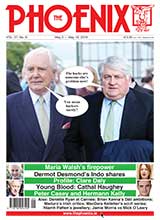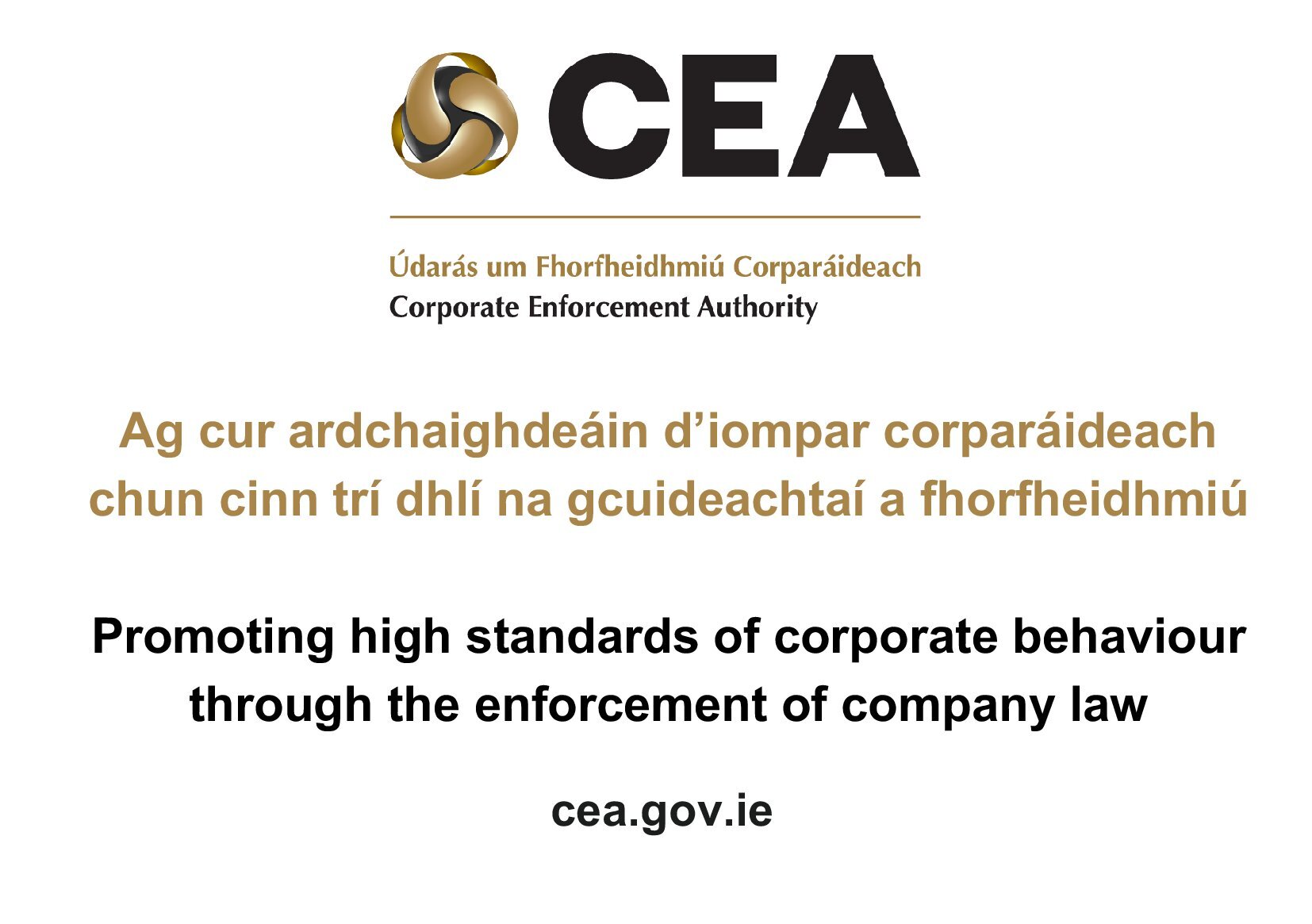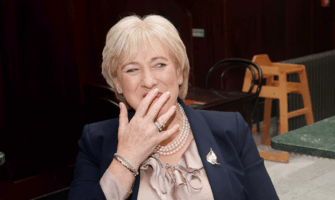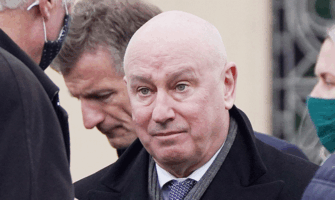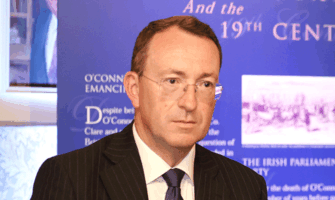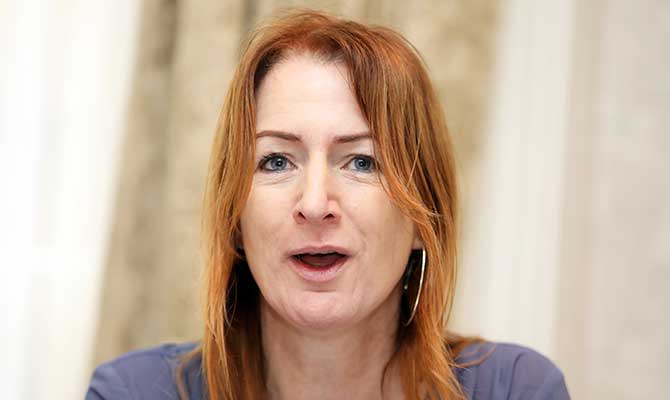
Calre Daly
CLARE DALY’S EU election bid in Dublin – as well as her political and personal partner Mick Wallace TD’s outing in the South constituency – has added excitement to a relatively mundane campaign. Senator Alice Mary Higgins’s candidacy grabbed the enthusiastic attention of the Irish Times and Sunday Independent, but Daly’s late entry offers a more substantial threat to the established parties and candidates. And despite her radical political profile, Daly is also a media darling, even though she keeps dangerous political company and has formed several strange alliances in recent years.
Among a welter of eight left-wing candidates, three past or present Labour Party members are running in Dublin, with official candidate Alex White facing off against Higgins – once a very active Labour member – and Daly. Other, less likely, left candidates are Social Democrats councillor Gary Gannon; two Solidarity/People Before Profit candidates, Gillian Brien and Rita Harrold; and Workers’ Party councillor Éilis Ryan.
However, Daly’s principal rival on the left is sitting MEP, Sinn Féin’s Lynn Boylan. She topped the poll in 2014 with a massive 83,264 or 23.9% of the first-preference vote, an extraordinary vote for that party.
The question is not just whether Daly will supplant Boylan, but whether both can take seats for the left in a Dublin EU constituency that has for decades elected two left MEPs. In 1979, Labour took two seats out of four and, apart from the 1984 election (when Fianna Fáil and Fine Gael shared the four seats), the left has always taken two seats. Significantly, the left also took two seats when the constituency became a three-seater (in 2009 and 2014).
This is important, as the fourth Dublin seat will remain in abeyance unless Brexit takes place before the EU elections or until it occurs after the elections. Neither FF’s Barry Andrews nor SF’s Boylan would be pleased if either were to be pushed into this slightly diminished MEP stature, although Daly might not care as long as she clambers into the European chamber, affording her an international role that she has been pining for in recent times.
Of course, another scenario is that Daly and Boylan cancel each other out to the benefit of the two big parties. Alternatively, Daly could benefit from a supportive media as her former Socialist Party comrade, Joe Higgins, did in 2009 when fear of Mary Lou McDonald retaining the SF European seat saw Higgins lionised in the media in the latter stages of the campaign.
At first sight, Daly presents as a formidable politician who combines radical politics with a strong work ethic and serious attention to detail. She has built up a strong female following, generally as a doughty fighter taking on ‘the lads’ in the Dáil and more specifically as a champion of the ‘Right to choose’ or Repeal of the Eighth. Daly moved Dáil motions proposing an abortion referendum three times while the liberal establishment took several years to inch its way towards consensus on this politically dangerous issue.
She has also made waves with a campaign against the abandonment of neutrality and her invasion, along with Wallace, of Shannon Airport in 2014 was pure theatre. The authorities wisely ensured that the two TDs spent just a few hours in custody after refusing to pay fines on conviction of breaking Shannon Airport bye-laws, but the duo still derived much cred on the left for this escapade.
GARDA REFORM
Daly’s main issue, though, has been that of Garda reform. More than any other politician, she can claim credit for exposing Garda malpractice, especially the complaints of whistleblower Sgt Maurice McCabe and his subsequent treatment by senior officers.
Blunders by gardaí, especially the arrest, handcuffing and breathalysing of Daly in Kilmainham in 2013, helped to accelerate the process of Garda reform – although much remains to be done – while also depicting Daly as a heroine fighting the bullying gardaí. Daly became the main politician associated with criticism of an out-of-control Garda in speeches about abuses that rang bells among voters who would normally have little time for far-left politics.
The question is whether the political kudos derived from these issues has survived the years since and is enough to see her propelled into the EU Parliament.
Daly’s record of protest and political activity has included many other issues and ranges from the above big ticket items to diverse issues such as anti-fracking and even attacks on the “vicious exploitation” in the horse-racing industry. But her progress from the cult that is the Socialist Party (SP), which controls the three-strong Dáil group Solidarity, to that of a one-woman, political force of nature has produced an enigmatic and inscrutable politico.
Clare was a member of the Militant Tendency inside the Labour Party in the 1980s and was expelled from Labour, along with Joe Higgins and others, in 1989 for being a party within a party. Renaming themselves simply Militant, they formed the SP in 1996.
Militant Tendency comrades in England, Wales, Scotland and Ireland all practiced the entryist tactic inside their respective Labour parties at the same time and in the same political manner. In Ireland, the transition from Militant Tendency to Militant Labour to the Socialist Party took place in tandem with the same process in the other countries in the same, late ’90s period. This ‘British Isles’ federation has produced a bizarre fusion of Trotskyism and Unionism, with the SP condemning a border poll as “coercion of one million Protestants into a united Ireland” and also denouncing the Good Friday agreement (GFA) as institutionalised sectarianism.
However, Daly’s break with the SP in 2012, after she had spent her entire adult life in that group, had little to do with politics or ideology. She had become close to Wallace, politically and personally, following their entry to the Dáil in 2011 and their shared membership of the Technical group, an amalgam of the hard left’s United Left Alliance (ULA) – the Joe Higgins led SP, Richard Boyd Barrett’s PBP and Independent socialist Séamus Healy – as well as softer socialists like Finian McGrath and Catherine Murphy.
It was the ‘softies’, along with Healy, who demanded that Wallace be ostracised following the revelations of his tax-dodging activities, while the SP remained mute given their own TD, Daly’s alliance with Wallace. Eventually, the political embarrassment became too much for the SP and it denounced Wallace, who responded by saying SP members had never dirtied their hands with manual labour.
Daly then resigned from the SP, stating that not enough had been done to achieve the urgent task of building the ULA, an obvious criticism of political sectarianism by her own party but one that nobody had ever heard her make before. Daly stood accused of putting her personal loyalty to Wallace above her own, SP/Militant politics of some 25 years and she had to endure some unflattering taunts from Dáil hecklers during this period (see The Phoenix, 27/2/15).
Daly’s energy and astute political judgment, combined with Wallace’s talents – he is not as articulate as Daly but is equally shrewd and committed – saw Daly ride the storm. Her chosen issues, especially the Garda scandals, ensured that her campaigning association with Sgt McCabe and not Mick Wallace defined her.
But there are other questions that remain unanswered about a politician who would once have a clearly defined line on every issue on the planet.
Anglo-Irish issues
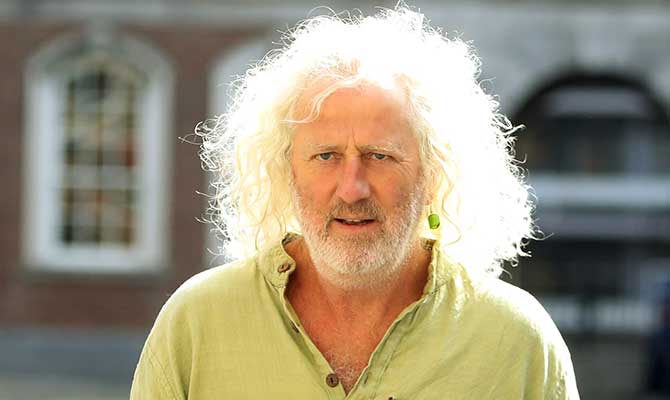
Mick Wallace
The north and Anglo-Irish politics, hardly a trivial issue, is one of these. The SP have an Anglo-centric view of Ireland and articulate a unionist outlook dressed in socialist rhetoric, a position that Daly had no problems with for over 20 years as a party member. In 2015, The Phoenix put various questions to Daly about issues like the north, which she declined to answer. Last week we again put some political questions to the TD, this time asking what she thought of the GFA; was she in favour of a border poll; and did she regard the DUP, SF or both as responsible for the impasse in the north’s Assembly. Again Daly declined to answer, although in the past she has granted an audience to those capitalist swine at the Sunday Business Post, as that paper mentioned last month.
Daly cannot be accused of being a political gadfly like many Irish Trotskyists. But it is difficult to take seriously a Dáil TD whose northern policy consists solely of visits to Maghaberry Prison and the trials of dissident Republicans in the north in a quest for civil and human rights for prisoners. This vicarious attitude to the national question is underlined by Daly’s failure to point to any statement on the northern executive, the GFA or central questions about equality and power sharing or even if she supports a united Ireland.
ECLECTIC STRATEGY
At the same time, Daly has shared at least three platforms at meetings of the socialist republican grouping Éirígí – including their ard fheis last year – which split from SF in 2006 because it was not fully socialist. At one of these, Daly accused SF of trying to bury the Nama/Project Eagle scandal as it was afraid of unseating DUP leader Peter Robinson. The Phoenix also asked Daly which parts of Éirígí’s political programme she agreed or disagreed with – she and Wallace endorsed Éirígí leader Brian Leeson’s local election campaign in Dundrum – but, again, she failed to reply.
Some weeks before she launched her own EU election campaign, Daly endorsed another Dublin candidate, WP Cllr Éilis Ryan, whose campaign pitch is the most EU-critical platform Goldhawk has so far seen in the election. Asked if this meant that Daly had the same, strongly Eurosceptic view, Daly once again had nothing to say. The WP, incidentally, would have a view of the north that is the polar opposite of Éirígí’s ardent Republicanism.
There is method to this eclectic political strategy as Daly has no real organisation nationally or in Dublin and only a small group around her in the Dublin Fingal constituency; even there she has never had a constituency office. Daly’s hard work as a councillor for 12 years helped her to build a popular local profile and her subsequent national exposure has made her a strong enough personality at the last two general elections. But she needs wider voting support to win a European seat and the strategy has been to campaign on myriad issues – from the local seal sanctuary to Julian Assange and Venezuela – and court support from parties and activists to the left of Labour and even SF.
Daly’s name recognition and her brand as the most prominent Independent candidate will pull many votes. She is also guaranteed support from most media – anybody but SF or, in some cases, FF, is the mantra in most newsrooms. But Boylan, too, has a significant record on human rights, as evidenced by her lead role in the release from an Egyptian prison of Ibrahim Halawa, climate change and media monopoly. Boylan’s party backing, with hundreds of SF activists and even TDs and senators, will be hard to compete with.
Last weekend saw Daly’s posters go up in Fingal, but not in other parts of Dublin where working-class areas were festooned with Boylan posters. Dozens of SF local election candidates canvassing for themselves and their EU candidate, Boylan, is something Daly can’t match. In 2014, SF’s first-preference local election vote in Dublin was around 70,000, while Boylan polled 83,000-plus, and the correlation between the two sets of votes is clear. Boylan will not replicate that vote – a whopping 23.6% – with the party perhaps over performing in that election and she will lose votes to Daly; but how much?
LIKELY OUTCOMES
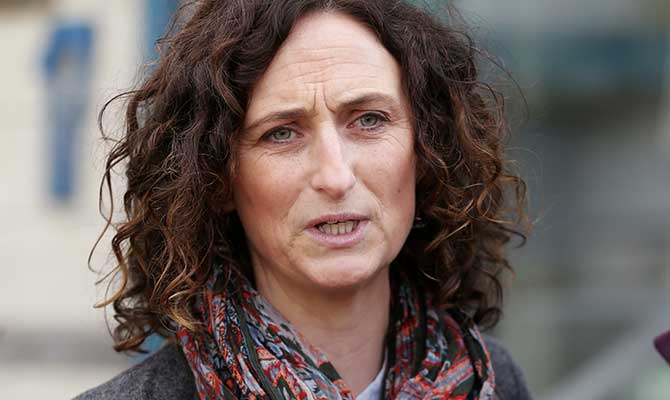
Lynn Boylan
The distinct possibility is that Dublin will again elect two left-wing MEPs, Boylan and Daly. With Daly standing out as a strong, Independent woman with a record of fighting on left/liberal issues and with media support, her campaign could catch fire and she may even top the poll. This would see Boylan fighting hard, but retaining her seat in third or even fourth place.
FF is weak in Dublin and Andrews’s languid performance in public debates will not help his campaign. On the other hand, FF is spending big money and Dublin has been plastered with hundreds of his posters. FG is strong in Dublin and the party vote will bring in Fitzgerald, probably in second place, although the contrived candidacy of the SDLP’s Durkan will do her few favours. Andrews should take a seat, the only question being whether he can avoid being beaten into fourth place.
A confusing factor is the unpredictable performance of Green Party candidate Cllr Ciaran Cuffe. Can Cuffe’s mild personality turn a surge of interest in climate change into a serious campaign for an EU seat? (The Greens are the most transfer-friendly party.) Will Alice Mary erode Daly’s support and how will transfers from the other five left candidates break down? Probably more to Daly than Boylan.
Daly will be sorely disappointed if she fails to make it to Strasbourg as both she and Wallace have told other TDs that they are weary, even bored, with domestic politics and would love to storm the European and international stage. Their trips abroad have included jaunts to the Middle East, Latin America and even the Ecuadorian Embassy in London to offer comfort to Assange. It sure beats campaigning for the Irish Seal Sanctuary in north County Dublin. And if Mick fails to take a seat in the South constituency, a successful Clare would surely put him on the payroll in her parliamentary team.



